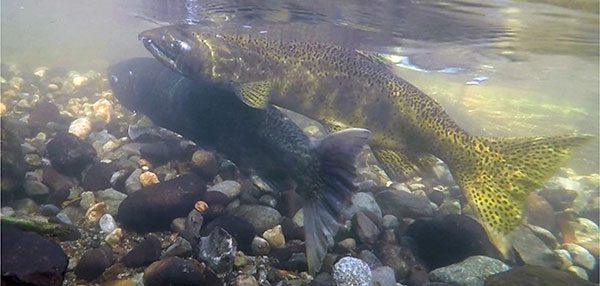The City of Seattle is in the process of updating the Stormwater Code and the Seattle Stormwater Manual.
The first draft of the updated Code and Stormwater Manual, that addresses equivalency with the State of Washington Department of Ecology (Ecology) rules and permits, is nearing completion. It will be ready to be shared with you and Ecology in July of this year. A second draft will be shared with you in January 2026 after we address your comments and Ecology’s comments. The second draft will also address other items that are not related to Ecology requirements.
We’d like to invite you to get involved by providing comments during the upcoming public review periods. There will be 2 public comment periods prior to submitting the final drafts to the City Council, the Mayor’s Office, and our Department Directors. The first public comment period is coming up and will be from July 8-August 5, with a public meeting on July 15. The second will be in the winter of 2026. See the Timeline below.
Stay tuned for additional information about the public comment periods and the public meetings. Sign up for the SDCI Stormwater Code Updates Listserv if you want to get email updates on project milestones, available documents, and upcoming public meetings.
Background
The State of Washington Department of Ecology (Ecology) requires that we update our current codes with additional stormwater control regulations as a condition of our Ecology Phase 1 Municipal Stormwater permit (Ecology Permit). The Ecology permit enforces the requirements of the National Pollutant Discharge Elimination System (NPDES) permit. We are revising our existing Stormwater Code (SMC 22.800-22.808), Seattle’s Stormwater Manual (Directors’ Rule 10-2021), and other associated Director’s Rules to meet these requirements. These new rules will replace the current code and Directors’ Rules which are administered jointly by the Seattle Department of Construction and Inspections (SDCI) and Seattle Public Utilities (SPU).
Summary of Changes
Our updates will consider the following topics:
- Required Equivalency Items as identified by Ecology (Appendix 10 of the NPDES Permit)
- General clarifications to improve usability
- Improve stormwater management for new development in Seattle
- Improve the Construction Site Stormwater Runoff Controls requirements
- Clarify Pollution Prevention, Good Housekeeping, and Operation and Maintenance
- Updates to Flow Control, Water Quality Treatment, and Source Control Practices
Timeline
- Initiation: August 1, 2024: The Department of Ecology reissued the NPDES Phase I Municipal permit
- Phase 1 – Ecology Permit Equivalency Items:
- Draft code and manual submittal to Ecology: July 1, 2025
- Public comment period: July 8 – August 5, 2025
- Public meeting: July 15, 2025
- Ecology review of draft code and manual: July – December 2025
- Phase 2 – Non-Equivalency Items (e.g. stormwater/combined sewer mainline extensions, combined sewer flow control standard/threshold, etc.)
- SEPA process
- Public comment period: Winter 2026
- Phase 3 – Legislative Process and Effective Date
- City Council review and public hearing: Spring 2026
- City Council review and public hearing: Spring 2026
- Effective: July 2026: Our updated Stormwater Code and related Director’s Rules are scheduled to take effect
These new rules will replace the current code and Directors’ Rules which are administered jointly by SDCI and SPU.
Summary of Changes
Our updates will consider the following topics:
- Required Equivalency Items as identified by Ecology (Appendix 10 of the NPDES Permit)
- General clarifications to improve usability
- Improve stormwater management for new development in Seattle
- Improve the Construction Site Stormwater Runoff Controls requirements
- Clarify pollution prevention, good housekeeping, and operation and maintenance
- Updates to Flow Control, Water Quality Treatment, and Source Control Practices
For more information visit our Stormwater Code Update website.
